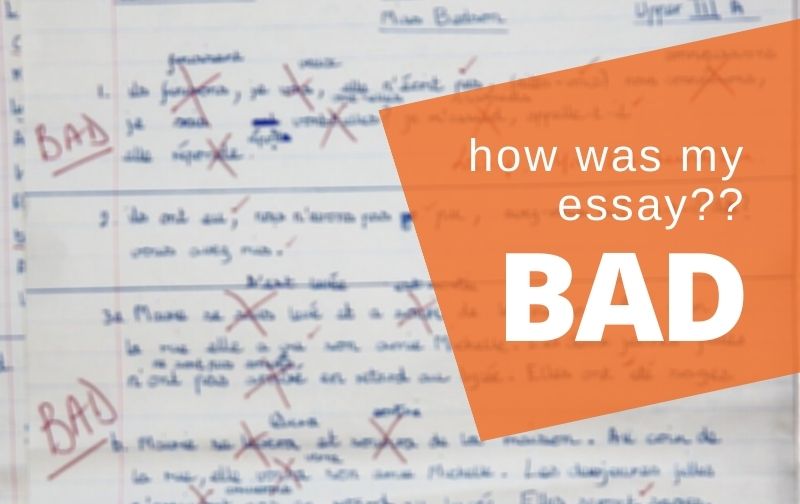
3 Productivity Tips from
Different Religions
By Carson King
Updated: May 17, 2022
There are roughly 4,200 religions in the world. Each one is unique and deep. While it’s impossible to give each one the time they deserve, these tips are catered to the casual seeker, looking for a little extra “spice” in their lives. When followed correctly, however, these tips can change your life in a powerful way. After all—it’s already changed the lives of millions . . . so why not yours?
Christianity

The largest and most well-known of world religions, Christianity has evolved, grown, and split into over 34,000 different denominations. Despite this, the message is the same: only through the grace and atonement of Jesus Christ, can humankind be saved. Christians believe that by following the laws of God, we are blessed.
1. Prayer
Mark 11:24: “Therefore I say unto you, What things soever ye desire, when ye pray, believe that ye receive them, and ye shall have them.”
By praying daily—in the morning, evening, and in your heart—Christians believe that Jesus Christ and God will help you and bless you to be able to do more than you can on your own, and will help guide and direct you as you make decisions. Anything can be enhanced through the power of prayer. Even for the non-religious, prayer is actually still good for you. There are thousands of prayers—both scripted and unscripted—to choose from. Here are a few prayers to get you started, and an additional guide here.
2. Battle procrastination
Proverbs 6:10-11: “A little extra sleep, a little more slumber, a little folding of the hands to rest—then poverty will pounce on you like a bandit; scarcity will attack you like an armed robber.”
Much of Christianity revolves around repenting before it’s too late (as seen in the Parable of the 10 Virgins). Procrastination can ruin your life and is actually much worse for you than you think. Write a list of all the distractions in your life. Go through the list and eliminate them one by one.
3. Positive thinking
Proverbs 4:23: “Our thoughts are powerful and influence our attitudes more than we realize.”
Our thoughts are no joke. Numerous studies here, here, and here have all proven that our thoughts hold immense power. Used wisely, our thoughts can improve our lives on a monumental scale . . . or destroy our lives, on an equally monumental scale. Try to: think more consciously and positively, use affirmations, write down good thoughts, etc.
Confucianism
Confucianism—the teachings of Confucious—is the bread and butter of the Asian continent. While Dynasties rose and fell, Confucianism flourished. Its teachings of honor, dignity, and respect, continue to be relevant in the modern world.
1. One step at a time
Confucius said, “A journey of a thousand miles begins with a single step.”
Whether your dream is to become the President of the United States or to open up your own smoothie shop, it all begins with a single step. Focus on it. Own the dream. Multi-tasking is a myth at best, a curse at worst. By focusing on each individual step, productivity will flow naturally into your life.
2. Make mistakes
Confucius said, “Better a diamond with a flaw than a pebble without.”
Life is about progression, not perfection. Confucianism reminds us to take a step back in our lives and evaluate who we are—are we a rough, broken diamond, making mistakes and battling to improve, or a “perfectly round lump of coal?” True productivity is beyond the realm of comfort. So unless you’re willing to make a few mistakes to get there, you’ll never become the person you want to become. Here are 15 reasons why mistakes are actually good for you.
3. Keep it simple
Confucius said, “Life is really simple, but we insist on making it complicated.”
In the end, we need food, water, shelter, and at least a few friends. Everything else—school, work, goals, hobbies, etc.—are all “frosting on the cake.” Enjoy the experience, but remember to check in with the simplicity of life. Enjoy breathing, taking a shower, or eating a good meal. Not only will this do wonders for your mental health, but you’ll live life with a higher purpose—and productivity.
Buddhism

Since the 1960s, Buddhism swept across the Western world. While some packed up and became monks, others discovered yoga videos on YouTube. Whoever you are—and whatever you want—Buddhism has something special to offer.
1. Yoga
Unknown: “Yoga is an art and science of living.”
It’s no question that physical activity—especially yoga—increases productivity. If you’re unconvinced (for any reason), check out the resources here, here, here, here, and here. Grant yourself the gift of extra energy and peace in your life, by establishing a regular yoga practice.
2. Daily meditation
Kurt Vonnegut: “The secret to success in any human endeavor is total concentration.”
Meditation, a completely foreign word only 50 years ago, has become a social norm—and for a very good reason. Thousands of scientific experiments and studies have concluded that meditation:
The benefits of meditation are non-negotiable. Meditation increases your productivity by giving you extra focus, purpose, and energy. Clear your mind today with the world’s most effective meditation, the 6 Phase Meditation.
3. Affirmations
Louise Hay: “Don’t affirm the negative if you want a positive outcome.”
Our thoughts and words are far more powerful than we realize . . . especially when repeated. Language creates our beliefs, reinforces our fears, and changes who we are. Affirmations are a form of subconscious mind programming (SMP) While there are many types of affirmations, affirmations as a whole aren’t necessarily a productivity tool. Rather, they can be a tool for anything you want, good or bad. For example, need more motivation? Hope? Focus? Productivity? Well, there’s an affirmation for you!
Hinduism
1. Satsang
Satsang is Sanskrit for “truth together”. It’s power through community. If you’re the average of the 5 people you spend the most time with, Satsang encourages you to make GOOD friends. Nothing kills dreams or motivation faster than toxic people. Be careful who you spend your time with, and surround yourself with other winners. Join a productive community on Facebook, Discord, or make some new friends around town.
2. Theyyam
Theyyam means the “Dance of the Gods.” Dancing boosts brain power, increases energy, and improves mood. Dance in your room, in the shower, or while in the car. Even Stanford agrees: “Dancing integrates several brain functions at once- kinesthetic, rational, musical, and emotional- further increasing your neural connectivity!”
3. Pranayama
Pranayama is an ancient breathing technique. Essentially, you breathe through one nostril at a time. The breather switches sides after each exhale. (learn more here) It does wonders for concentration and focus. Pranayama is a deep form of meditation that purifies the heart and clears the brain…. A must-have for productivity experts!
Norse Paganism (Asatru)
Norse Paganism, also known as Asatru, is faith-based on the Norse Gods (Odin, Thor, etc). Their sacred texts include the Havamal, (the words of Odin), and the Poetic Edda, a medieval manuscript of anonymous poems. Its recent growth has paralleled the growth of other “new age” views, such as Holistic living, Wicca, and Astrology.
1. Focus on the essential
As the Havamal says: “Wealth dies. Friends die. One day you too will die. But, the thing that never dies is the judgment on how you have spent your life.”
It’s easy to get caught up in the day-to-day activities of life. However, how many of these things actually matter? It’s not an easy answer. However, it’s easily the most important. The Havamal also says, “Speak useful words or be silent.” Be more productive by saving your energy for things that matter.
2. Wake up early
As the Havamal says: “Wake early … No lamb for the lazy wolf. No battles won in bed.”
The beginning of the day is always the most important part. How you start your morning affects the rest of your day. Be proactive in your life, and wake up with the vigor to conquer the world. No battles are won in bed, no matter how warm and fuzzy the blankets are. Mark Twain’s concept of “eat a live frog first thing in the morning” also applies here. (However, we don’t recommend the literal eating of live frogs, especially poisonous ones.)
3. Always be prepared
As the Havamal says, “A man should not step one foot forth in the field without weapons. One cannot know, on the road, when he will need his spear.”
“Bad things” happen all the time: a traffic jam, the toilet gets clogged, or we burn our toast and scream for mercy. The lesson? Be flexible. Be ready. Situations change. When someone ruins your daily routine, don’t lose hope, but strive to move onwards and upwards. Be ready before—both mentally and physically. Productivity isn’t just about “planning” your day, but also “preparing” your day.
Islam

For the 0.0001% of people who have no idea what Islam is, it was founded by the Prophet Muhammad (peace be upon him) through Allah in the 7th Century, Saudi Arabia. Through a series of revelations, the Prophet Muhammad gathered Allah’s words in the Holy Quran. For centuries, Islamic thought has focused on mastery of Allah’s word, and the purification of the believers.
1. Focus on excellence
The Prophet Muhammad said, “Allah loves that when you do anything, you do it with excellence.”
Life is too short to be lived casually. Participation medals are meant for the half-hearted, the people who kinda care (but not really). Try focusing on quality, and see your happiness and productivity swing a little higher. Strive for excellence in everything you do. It’ll save you a lot of time and energy in the long run.
2. Establish a morning routine
The Prophet Muhammad said, “God made the early hours blessed for my nation.”
The concept of “waking up early” is part of every major religion . . . coincidence? Doubtful. Optimize this powerful time with a powerful routine. The benefits of waking up early include better focus, more energy, and more time. Many high-level CEOs wake up at 4:30, and some as early as 3:45 am. Coincidence? Not likely. Here are some quality alarms to help you out.
3. Read the Holy Qur’an (or other holy/good books)
The Holy Qur’an says, “So when the Qur’an is recited, then listen to it pay attention that you may receive mercy.”
Reading the scriptures and other “holy books” is vastly underrated. Today, fancy business books, and shallow “productivity hacks” have overshadowed much of the world’s greater wisdom. Take some time to dig deep into ancient wisdom… you might be surprised how much it improves your life. The more you learn, the more you earn.
Bushido
While technically not a religion, Bushido (the Way of the Samurai) is a warrior philosophy, concerning the matters of life, death, honor, and war. While few still carry Samurai swords, the way of Bushido continues to provide remarkable insight into our lives.
1. Focus on what you control
Miyamoto Musashi said, “There is nothing outside of yourself that can ever enable you to get better, stronger, richer, quicker, or smarter. Everything is within. Everything exists. Seek nothing outside of yourself.”
Do you control the weather? The traffic? Wasting time complaining about external situations is not only a waste of time but a form of procrastination. Make a list of all the challenges in your life—if you can’t control them, adapt and do your best to not dwell on them. Save your focus for things within your control.
2. Shūitsu (excellence)
Miyamoto Muashi said, “You can only fight the way you practice.”
Seek excellence at every opportunity. Excellency is a habit—one that is cultivated over a lifetime of effort. How you do anything is how you do everything. Be noble in everything you do. Be willing to say “no” to your friends, and to be the lone ranger sometimes. Greatness comes at a price . . . what are you willing to sacrifice?
3. Seek mastery
Bruce Lee said, “I fear not the man who has practiced 10,000 kicks once, but I fear the man who has practiced one kick 10,00 times.”
In battle—and life in general—we resort to our primal habits. You may “know” what to do, but without practice and implementation, it’s hardly more than brain candy. It’s better to read one book about productivity and use/apply what you learn, rather than 1,000 books and do absolutely nothing. Seek to learn, and then immediately strive to use what you learn. Anything less is a waste of potential.
Judaism

Judaism is one of the oldest religions in the world and is the “mother” religion to both Christianity and Islam. Jews believe that they have been chosen by God—and that through strict obedience to His commandments, they will be saved.
1. Work diligently
Psalms 128:2: “You shall enjoy the fruit of your labors; you shall be happy and you shall prosper.”
Working hard is often underrated, eclipsed by quick “tips-and-tricks.” Sometimes, working harder just makes you more productive. Be smart, and be flexible too. If you have a goal worth going all in for—go for it. Whether it’s karma or being blessed with the “fruit of your labors,” you will achieve success. Keep going!
2. Kosher diet
“If you keep good food in your fridge, you will eat good food.” – Errick McAdams
The Kosher Diet—or any particular diet—could be worth your time. Thousands of dietary plans float around the internet. Some may work, others may not. The point being: when used correctly, diets can improve health, increase energy, and help lose weight. This can include Flexitarian Diet, the Warrior Diet, or a Meditarian Diet—do your own research!
3. Tzedakah
“How wonderful it is that nobody need wait a single moment before starting to improve the world.” – Anne Frank
Tzedakah is the Hebrew concept of charity in good will. It’s seen as a religious obligation to care for the sick, give to the poor, and serve your neighbor. Tzedakah is a service. While the “purpose” of Tzedakah is to obey and serve God, everyone can participate in the benefits of charity and service. Dozens of scientific studies here, here, and here have concluded the same thing: serving others increases mood, energy, and sense of purpose. Make a goal to do something nice each day, and watch your quality of life increase little by little. This can include writing letters, complimenting someone, doing the dishes, etc.
Modern science

While technically not a religion . . . modern technology and scientific research have done some remarkable things. It’d be a shame to leave them out.
1. Sleep at the same time each night
The Dalai Lama said, “Sleep is the best Meditation.”
Sleeping at the same time—especially each night—is notoriously difficult. In a world of Twitter, Hot Pockets, and Clash of Clans, we can stay up anytime, doing anything. However, the science is clear: maintaining a regular sleeping routine helps you sleep faster, better, and wake up with more energy. Higher energy = Higher productivity.
2. Get a head start on your day
Dale Carnegie said, “An hour of planning can save you 10 hours of doing.”
Begin to plan the day, the day before. Not only will this give your subconscious mind time to go over your plans as you sleep, but you’ll also wake up with far more purpose and intention. Here, clarity is power. Take five to ten minutes each night to write plans, list goals, and set your intention for the next day. Trust me—you won’t be disappointed!
3. Maintain a list of back-burner tasks
Craig Bruce said, “My to-do list is so long that it doesn’t have an end; it has an event horizon.”
There will always be “empty” slots throughout the day—sometime before work, during a lunch break, toilet time, or even just a change of plans. So? Be prepared, and carry a list of low-priority tasks that can be done anytime when you have an extra second. You’ll be surprised how much more productive you can be!
In conclusion
This list is far from complete—every religion is so unique and different, and it can be difficult to choose only a “few” things from each. Perhaps we’ll have a Part 2 in the future? Regardless, I encourage you to continue your research, and to give at least some of these helpful tips from religions and wisdom around the world a try. Hope you enjoyed your stay and happy learning!
Popular Posts
Famous People Who Failed the Bar
Law School Grades: Avoiding Crushed Souls and Bloated Egos
Crushendo vs. AudioOutlines vs. AudioLearn
Bar Exam Anxiety Tips: How to Not Become a Nervous Wreck
Parody: Motivational Movie Clip Mashup
Buzz
Crushendo Launches National Bar Prep Competition
Bar-pocalypse! Bar Prep During COVID
Meet the Millennial Turning Bar Prep Upside Down
The Fun Way To Crush Your Bar Exam Prep (Yes, Really)
A Quick Introduction to Crushendo – Law Students Take Note
Crushendo Helped Me Fail a Practice MBE Exam [in the Best Way]
How I Supplemented My Bar Prep Course
Is Crushendo the Future of Exam Prep?
Results Are In… Crushendo IS the Future of Bar Exam Prep

About the author
Carson King is a content writer, author, and globetrotter. He’s volunteered internationally through various organizations and written for numerous corporations. When he’s not writing or reading, you can find him with a cup of Mexican hot chocolate.



